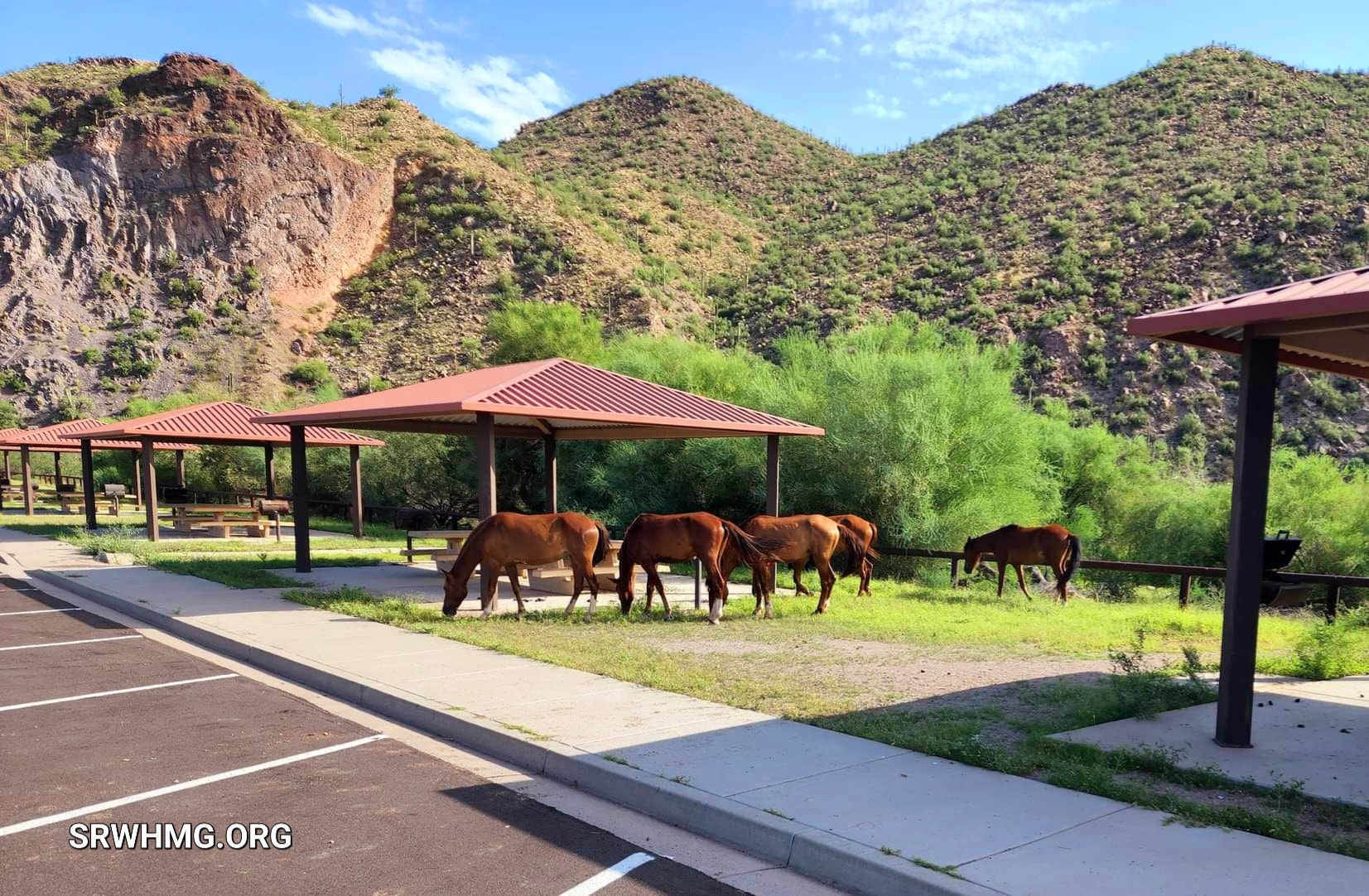
What a great day for a picnic in the Tonto National Forest!
August 21st
What a great day for a picnic in the Tonto National Forest, where wild horses are humanely managed and treated with respect. Isn’t this is nice thing to know?

Picture by SRWHMG road patrol team.
Humane management entails many different aspects and is a daily job for our all-volunteer organization (SRWHMG), but we do it with great dedication and love. We manage them under contract with the AZ department of Agriculture (AZDA) and in partnership with the TNF. This is in steep contrast with other types of management in other areas in the country and even with other Forest Service regions in Arizona.
The Salt River wild horses seem like the lucky ones, but it’s not just luck, it’s carefully planned management supported by the right officials and legislators and most importantly supported by the public.
It is our goal to show that THIS is a better and more sustainable way to manage American wild horses as opposed to endless cycles of cruel and expensive roundups.
- Humane management is better for the public, because the public loves watching wild horses and wants to preserve them for future generations as part of our western history. The interesting and peaceful behaviors of wild horses provide joy and peace to millions of visitors, which in turn provides an economic boon to local businesses: Wild horses sell camera equipment and hotel rooms.
- Humane management is better for the Forest Service, who now don’t have to worry about anything in regards to the horses. SRWHMG handles any type of situation that may occur: we take the calls from the public, we patrol and maintain fencing and shut gates that get left open, we handle injuries, emergencies, and keep track and document every wild horse, and we educate the public.
- Humane management is better for taxpayers. Our fertility control program reduces the population humanely, so that the Forest Service does not worry about the population growing out of control. The result is that they don’t spend taxpayer money on roundups and trying to find homes for wild horses. Good homes for wild horses are hard to find, and it’s much better for the budget to leave them in their historic home, where they are not costing anyone a dime.
- It is better for the environment. Wild horses have many environmental benefits like spreading seeds, improving the humus of the soil and helping mesquite forests grow which are good for all animals and birds. They reduce flammable undergrowth and therefore prevent disastrous wildfires. They make paths through the Forest that are of great value to other animals and humans who use them. They eat invasive plants like giant reed and tamarisk and also stomp on these hard plants and prevent them from taking over the riverbanks. The areas in the TNF where wild horses are no longer allowed, (the Phon D area and Butcher Jones) have significant overgrowth and are much less hospitable to people now, even while the Forest Service was trying to accomplish the opposite.
- Humane management is better for the horses. While it is true that wild horses have lived for centuries without men, they have also died and suffered and starved and that’s not what the public likes to see when they are having a picnic in the forest. An infinite amount of suffering is reduced when injuries are monitored, orphans are rescued and horses don’t have to die slowly when they break a leg. In addition, mares need much less nutrition and live longer when they don’t have to give birth and produce milk every year.
We could go on and on with benefits like the scientific value of our extensive documentation and our 100% success rate with PZP, but for today this is enough information to digest for this picnic.
Managing wild horses humanely in the field is like a picnic in the park; a win-win happy ending for everyone. Please support our important programs. Thank you.
